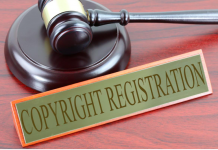This article is written by Shristi Roongta, from Amity Law School, Kolkata. This article details the necessity of copyright registration and the remedies available in case of infringement.
Table of Contents
Introduction
Suppose Mr. A has written a book which took him 2 years to complete. He has launched the book and gained popularity because of his story and writing. One day, he read somewhere, B, a beginner has written a book which was an exact copy of Mr. A’s work. B has copied A’s work without his permission. Now, what can A do? Can he claim damages, but he has not registered for copyright? Yes, A can claim damages though he has not registered for copyright. Since, copyright protection is available when a work is created, even if not registered. But then, what is the need for registration? In this article, the advantages of copyright registration are being discussed in detail.
What is Copyright
Copyright is an intellectual property that protects the exclusive rights of the owner to form copies of his creative work. Copyright can be defined as a right of an owner on his creative or artistic work. This right includes the right to reproduce the work, distribute the copies, or display the work publicly. In India, copyright law is governed by the Copyright Act, 1957. After being amended about six times, with the latest amendment in 2012, the act provides exhaustive copyright in various works. Copyright generally protects the original expression of an idea in the form of work and just an idea. Works such as writing a book, creating a song or a painting by a painter are all forms of artistic works which take a great amount of time, effort and resource. All of these works are at risk of being copied, herein copyright registration plays an important role. It saves a person’s work from being copied without the author or owner’s permission. Though copyright is subjected to limitations that are based on the public’s interest with a time limit.
The principal aim of copyright is to encourage and provide an incentive to the owners or authors of the original work and which also provides benefits to the author and the public. The owner receives awards in monetary forms for his creative works and the public in the form of drama, music, art, stories, etc.
How does copyright help you
Copyright ensures that no person uses someone else’s work without their permission. If suppose a person uses other’s work, that person can claim damages, can file a suit and etc. What can a copyright owner do? He can reproduce his work, can create more copies of the original content, he can also distribute the copies for a price or he can display his work, for example in a museum or art gallery or a roadshow, etc. A copyright owner can even transfer his right by a contract to any person.
Advantages of copyright registration
Copyright protection is available even without registration of copyright. Any person can sue or claim damages. But after registering for copyright registration, the owner of the work gets extra benefits that he can enjoy after registration. The following are the benefits of registration of copyright:
To know more about Copyright Registration please visit
Public record of ownership
Once the copyright of the work is registered, it is notified to the public and becomes searchable. It is also documented in the name of the owner. This not only protects the work but also gives the owner the ownership which is freely spread in the public domain. This leads to an advantage to the owner as no one can claim that he did not know about the owner or his work, or can doubt the originality of the owner’s work, the owner gets the credit for his work and also builds a good reputation among people. The public record of ownership is important as many times, the ownership of the owner over copyright is in question.
Presumption of ownership
The ownership is presumed if the registration is done before or within five years of publication of the work. It forms the prima facie evidence for the validity of the ownership. In case. Anyone challenging the ownership shall have the burden of proof on him. This presumption of ownership is needed in case someone tries to infringe, causing serious harm then the owner can have an immediate court order to restrain that infringer.
Stand out in the crowd
There is tremendous competition everywhere, it is very important to stand out in the crowd. A person may find himself surrounded by competitors when he starts something new or does some work then it is important to showcase his work out of a pool of the same category of people. By registering his work as copyright, which may be a small piece will lead to inaccessibility to competitors. This will not only help in standing out but also gives a push in the profits.
Ability to enforce Copyrights by filing a lawsuit for Copyright infringement
The most important advantage of registering the copyright. The owner can file a lawsuit against the infringer. An unfortunate event can happen wherein the owner can file a suit and seek damages from the infringer. If the copyright is not registered then the owner has to prove his right by collective evidence against the infringer and the burden of proof will lie upon the owner. The copyright registration can be considered as a pre-condition for filing a lawsuit.
Section 48 of the Copyright Act states the validity to entries of the registration certified by the Registrar of Companies as prima facie.
For example, if a YouTuber uses any music of any other person without his permission in his video, then that owner can file a suit against youtube seeking damages.
Eligibility for Statutory Damages, Attorney Fees, and Costs of Suit
In case of a copyright infringement, the owner becomes eligible to claim statutory damages. Registration becomes very important in this case as proving damages becomes a difficult task for a case of infringement. This also relieves the owner from proving the actual damages. The copyright owner will also be awarded a certain amount of money for every case of infringement. Registration of copyright during this period also qualifies the owner to obtain an award of attorney fees and costs of suit. In copyright infringement cases, the fees of the attorney and legal fees are very expensive, and it is the discretion of the court to award attorney’s fees and legal costs to the owner of the copyright.
Protection Against Importation of Infringing Works
There is one program in the USA which is known as the U.S. Customs and Border Protection (“CBP”). In this, registration is required and the CBP seizes the products that are imported and violates the rights of intellectual property in the USA.
Protection of monetary losses
An important reason for the registration of copyright is the protection of monetary losses. The original works get copied easily hence it becomes necessary to protect the original work from being copied. In India, the word piracy is used for referring to copied work. Movies, videos, games and etc which are pirated are commonly available in every city or are illegally downloaded.
Case law
In Dhiraj Dharmadas Dewani v. Sonal Info Systems Pvt Ltd, it was held by the Bombay High Court that if an owner of copyright wants to invoke civil or criminal remedies under the Copyright Act, then he should have a copyright registration. The court observed that the main function of the Copyright Office is to maintain registers of copyright in which the names of the authors and the owners of the copyrights and other relevant information will be entered, this shall be at the option of the author or owner and which shall be made available to the public. To initiate any proceeding regarding the infringement of copyright, the copyright must be registered at the Copyright office.
Menace of non-registration
Although registration of work is not mandatory to receive protection as it automatically gets protected when the work is finished. The registered copyright can also be reproduced, sold and performed but the chances of reproducing unregistered original work are of greater chances than registered one. The registered copyright is proof of any original work, it proves that the owner has the exclusive right over the work. In case, the work is not registered it becomes difficult to prove the ownership, and protecting the work from being copied or reproduced from others becomes even more difficult. If the work is not registered the risk of copying increases and following are the limitation which leads to limitation:
Suit for infringement- in case of non-registration of copyright, the suit for infringement cannot be filed and in order to bring a suit for infringement, the copyright must be registered. It is also a prerequisite under the copyright act to bring a suit of infringement and the registered copyright is a prima facie evidence of the original work against which the suit can be initiated.
- In case of raising a loan, registered copyright helps in getting one on the basis of the work.
- If the work is not registered then the owner of the original work cannot stop someone who is infringing his rights unless he registers his work.
Damages of the suit- in case of an unregistered suit of infringement, the owner only gets for the actual loss and the amount gained by that person who used that work. While in case of registered copyright, the owner gets the statutory damages along with the attorney’s fee and thus it saves a substantial amount for his registered work.
Conclusion
The registration of copyright is extremely important to restraint someone from using the original work of the owner who gave his time and efforts into it. Though the registration is not mandatory but by registering the work as copyright, the owner gets numerous benefits. The owner has all the proofs regarding his work in case of an infringement, he can sue the infringer without collecting evidence from everywhere. His work gets published in the public domain which gives him the satisfaction of safety, pride, prestige, and also a good reputation. Even the owner enjoys profit on his work by publishing, distributing, or claiming damages for infringement. The copyright registration also protects the owner from piracy which is extremely important. Hence, it is concluded that registration of copyright has several benefits which the owner must avail and should register his creative work.
References
- Jaburg Wilk, Why Register My Copyrights? The Benefits of Copyright Registration http://www.jaburgwilk.com/news-publications/benefits-of-copyright-registration
- Vikram Saha, Advantages of Filing A Copyright Registration file:///C:/Users/DELL/Desktop/D/Advantages%20of%20Filing%20a%20Copyright%20Registration%20-%20Vakilsearch.htm
LawSikho has created a telegram group for exchanging legal knowledge, referrals and various opportunities. You can click on this link and join:
 Serato DJ Crack 2025Serato DJ PRO Crack
Serato DJ Crack 2025Serato DJ PRO Crack











 Allow notifications
Allow notifications


